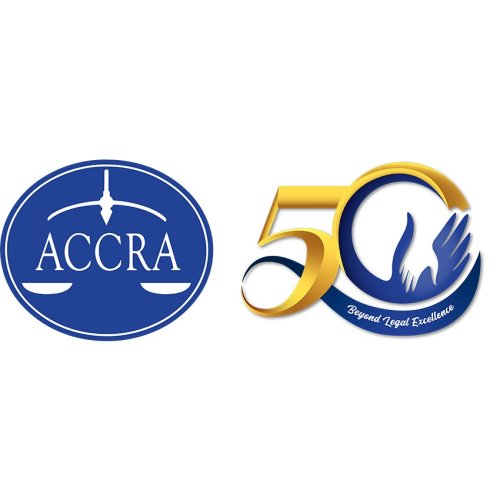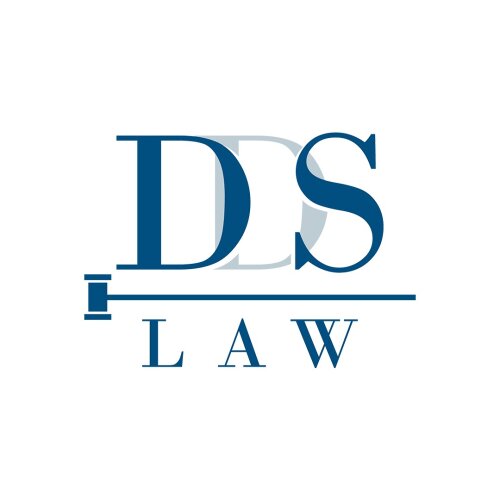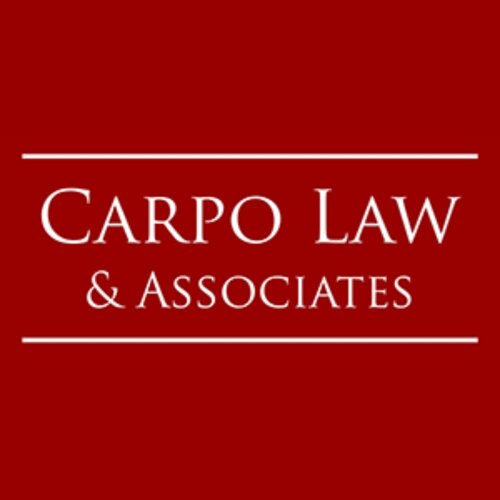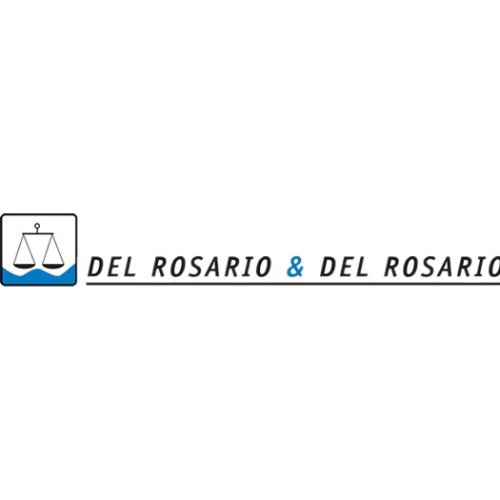Best Debt Capital Markets Lawyers in Taguig
Share your needs with us, get contacted by law firms.
Free. Takes 2 min.
List of the best lawyers in Taguig, Philippines
About Debt Capital Markets Law in Taguig, Philippines
Debt Capital Markets (DCM) refer to financial markets where entities such as corporations and governments raise funding by issuing debt instruments, like bonds or notes, to investors. In Taguig, Philippines, which is home to Bonifacio Global City - a leading financial and business district - the DCM is an essential component of the economic landscape. Legal frameworks governing DCM transactions ensure transparent, efficient, and fair market operations, protecting both issuers and investors. Legal professionals working in this sector help navigate complex regulatory requirements, draft and review documentation, and facilitate compliance with both Philippine and international best practices.
Why You May Need a Lawyer
There are various reasons why individuals and companies in Taguig may need legal assistance in the field of Debt Capital Markets:
- Structuring and launching debt offerings (local or cross-border bonds, notes, or commercial papers)
- Drafting and reviewing debt issuance documentation
- Ensuring compliance with securities regulations and disclosures
- Liaising with regulatory bodies like the Securities and Exchange Commission (SEC) or the Philippine Dealing and Exchange Corp. (PDEx)
- Addressing tax implications of debt instruments
- Resolving disputes related to default, restructuring, or investor relations
- Conducting due diligence and risk assessment for investors or issuers
- Assisting with post-issuance obligations and continuing disclosure requirements
- Advising on market practices for green bonds or sustainable finance products
- Preventing violations and mitigating penalties related to regulatory breaches
Whether you are a company seeking to raise capital, a financial institution, or an investor, engaging a lawyer ensures your interests are protected throughout the process.
Local Laws Overview
The legal environment for Debt Capital Markets in Taguig is shaped by various national and local regulations. The primary legal sources include:
- The Securities Regulation Code (SRC) - This is the foundation of Philippine securities laws. It governs the registration, issuance, and trading of securities, including debt instruments.
- Securities and Exchange Commission (SEC) Regulations - The SEC issues detailed rules covering registration, disclosure, and reporting requirements.
- Philippine Dealing and Exchange Corp. (PDEx) Guidelines - PDEx is the main fixed income market in the Philippines, and its rules govern the listing and trading of debt securities.
- Corporate Regulations - The Revised Corporation Code outlines corporate authorities and procedures for debt issuances.
- Tax Laws - The National Internal Revenue Code covers tax implications for issuers and investors, including withholding tax and documentary stamp tax.
- Central Bank Policies - The Bangko Sentral ng Pilipinas (BSP) regulates issuances by banking institutions and foreign exchange flows.
Local government units, such as Taguig City, generally defer to national regulations, but may have additional tax or permit requirements for businesses operating within their jurisdiction. Legal advice ensures compliance with all relevant laws and maximizes success in DCM transactions.
Frequently Asked Questions
What are common types of debt instruments issued in Taguig and the Philippines?
The most common instruments include corporate bonds, government securities, commercial papers, and bank-issued notes. Specialized products like green bonds are also gaining popularity.
Who regulates debt offerings in the Philippines?
The primary regulator is the Securities and Exchange Commission (SEC). For listed securities, PDEx and the Philippine Stock Exchange may also be involved.
Do all debt securities need to be registered with the SEC?
Generally, yes. However, there are exemptions for private placements and certain qualified buyers. Legal advice is important to determine whether your offering qualifies for an exemption.
What disclosures are required when issuing debt securities?
Issuers must provide a prospectus with detailed disclosures about the company, the securities, risks, and financial information to ensure investor protection.
What are the penalties for non-compliance in Debt Capital Markets?
Penalties may include fines, suspension of activities, or even imprisonment for serious offenses such as securities fraud or unauthorized offerings.
How are investors protected in the Debt Capital Markets?
Laws require transparent disclosures, fair dealing, and adherence to market regulations. The SEC investigates complaints and may order remedies or sanctions when necessary.
Are foreign companies allowed to issue debt securities in the Philippines?
Foreign entities may issue debt securities subject to SEC approval and compliance with local regulations, including possible registration and disclosure obligations.
What is the usual process for conducting a public debt offering?
The process involves due diligence, preparation of offering documents, regulatory filings, SEC and PDEx approvals, and public marketing to investors before final issuance.
Is it possible to trade debt securities after issuance?
Yes, most debt securities can be traded on accredited exchanges like PDEx subject to compliance with trading rules and applicable transfer restrictions.
How can I resolve disputes related to debt securities?
Disputes can be resolved through negotiation, mediation, regulatory intervention, or court action. Specialized lawyers can advise on the best approach, depending on the circumstances.
Additional Resources
- Securities and Exchange Commission (SEC): The main regulatory body for securities laws and compliance in the Philippines.
- Philippine Dealing and Exchange Corp. (PDEx): The principal fixed income securities exchange in the country.
- Bureau of Internal Revenue (BIR): For tax matters related to debt issuances and investments.
- Banks and Financial Institutions: Many banks in Taguig offer advisory and DCM services, often with dedicated legal counsel.
- Philippine Bar Association: For guidance on finding accredited legal professionals specializing in Debt Capital Markets.
- Local Law Firms in Taguig: Many leading firms have specialized teams for capital markets and financial law.
Next Steps
If you are considering engaging in a Debt Capital Markets transaction or require advice on legal or regulatory matters, consider the following steps:
- Assess your objectives and needs - whether as an issuer, investor, or intermediary.
- Seek a preliminary consultation with a lawyer or a law firm specializing in Debt Capital Markets law, particularly those with experience in Taguig and national regulations.
- Prepare relevant documents and information regarding your entity, planned transaction, or investment.
- Discuss timelines, regulatory requirements, and associated legal fees with your chosen legal advisor.
- Ensure ongoing compliance by requesting regular legal updates or reviews of your Debt Capital Markets activities.
Promptly seeking legal guidance can help you avoid costly mistakes and ensure the smooth execution of your Debt Capital Markets transactions in Taguig, Philippines.
Lawzana helps you find the best lawyers and law firms in Taguig through a curated and pre-screened list of qualified legal professionals. Our platform offers rankings and detailed profiles of attorneys and law firms, allowing you to compare based on practice areas, including Debt Capital Markets, experience, and client feedback.
Each profile includes a description of the firm's areas of practice, client reviews, team members and partners, year of establishment, spoken languages, office locations, contact information, social media presence, and any published articles or resources. Most firms on our platform speak English and are experienced in both local and international legal matters.
Get a quote from top-rated law firms in Taguig, Philippines — quickly, securely, and without unnecessary hassle.
Disclaimer:
The information provided on this page is for general informational purposes only and does not constitute legal advice. While we strive to ensure the accuracy and relevance of the content, legal information may change over time, and interpretations of the law can vary. You should always consult with a qualified legal professional for advice specific to your situation.
We disclaim all liability for actions taken or not taken based on the content of this page. If you believe any information is incorrect or outdated, please contact us, and we will review and update it where appropriate.
















